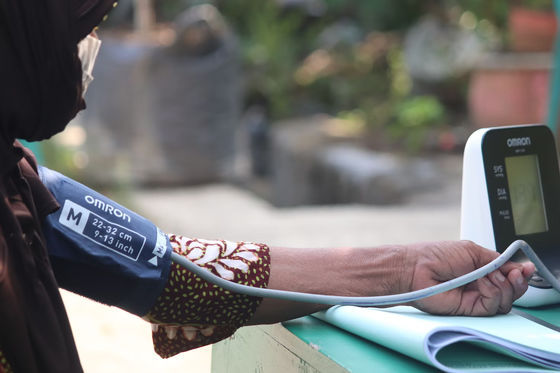A kind of hypertension causative gene and treatment method revealed

A research team led by Queen Mary University of London and St. Bartholomew's Hospital has identified a genetic variant that causes common hypertension and its treatment. The research is published in the journal Nature Genetics.
Somatic mutations of CADM1 in aldosterone-producing adenomas and gap junction-dependent regulation of aldosterone production | Nature Genetics

Discovery of a new gene responsible for ``primary aldosteronism,'' a type of hypertension New perspectives for elucidating the pathology of drug-resistant hypertension | Press Releases and Research Results | Tohoku University -TOHOKU UNIVERSITY-
Cause and Cure Discovered for Common Type of High Blood Pressure
https://scitechdaily.com/cause-and-cure-discovered-for-common-type-of-high-blood-pressure/
A previous study by researchers at Queen Mary University of London found that 5% to 10% of people with hypertension have genetic mutations in the adrenal glands that overproduce aldosterone, a hormone secreted by the adrenal cortex, which is the cause of hypertension. I have confirmed that it is. Aldosterone has a role in regulating blood pressure, but if blood aldosterone levels are too high, it cannot be treated with commonly used antihypertensive drugs and increases the risk of heart attack and stroke.
The researchers found that genetic mutations in some of the benign adrenal nodules, or lumps, that occur in 1 in 20 people with hypertension cause aldosterone overproduction. The gene mutation affected the cell membrane protein CADM1, which functions as an adhesion molecule that binds cells together, and inhibited intercellular communication that signals to stop aldosterone production.
Researchers also found that this type of hypertension can be treated by removing one of the two adrenal glands.
Removing one of the adrenal glands resolved what had previously been severe hypertension despite the administration of multiple drugs, and after years of observation, no treatment was required.

Less than 1% of people with hypertension that can be attributed to aldosterone have been identified, but researchers measured aldosterone with a urine test over a 24-hour period rather than a single blood test. By doing so, he states that more patients with hypertension but unidentified causes can be found.
Professor Morris Brown, Queen Mary University of London, said: 'On the occasion of the 900th anniversary of St Bartholomew's Hospital, we are pleased to share the benefits of a virtuous circle of science and medicine. They agreed to atypical molecular analyses, which will allow us to find out how hypertension is caused and how to treat future patients. 'Because the aldosterone nodules were so small, we are investigating whether instantaneous ablation of the nodules could be an alternative to surgical resection of the entire adrenal gland.'
Related Posts:
in Science, Posted by logc_nt







